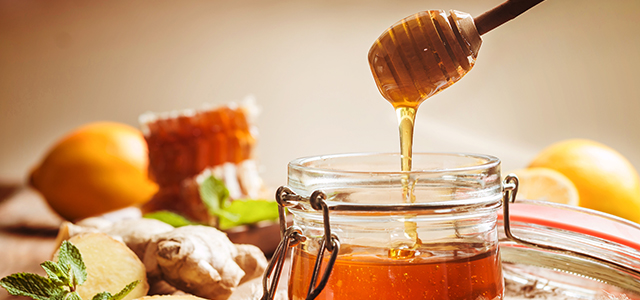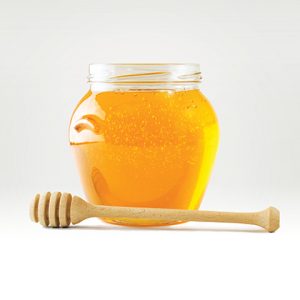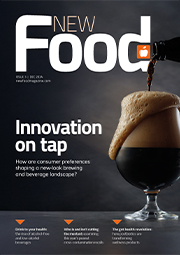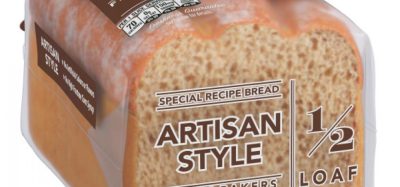When honey is not all honey and other tales of food adulteration: Ion chromatography as a tool for detecting food fraud
- Like
- Digg
- Del
- Tumblr
- VKontakte
- Buffer
- Love This
- Odnoklassniki
- Meneame
- Blogger
- Amazon
- Yahoo Mail
- Gmail
- AOL
- Newsvine
- HackerNews
- Evernote
- MySpace
- Mail.ru
- Viadeo
- Line
- Comments
- Yummly
- SMS
- Viber
- Telegram
- Subscribe
- Skype
- Facebook Messenger
- Kakao
- LiveJournal
- Yammer
- Edgar
- Fintel
- Mix
- Instapaper
- Copy Link


About this webinar


Orange juice has been subject to the same type of adulteration. Expensive fruit juices can be diluted with less expensive juices to reap economic gain and defraud the customer. Sometimes a food product is valued for its geographic origin. These products are also subject to fraud when the same type of product from a different location is labeled as being from the desired location.Labeling a whisky as Scotch whisky that was not produced in Scotland is an example of this type of fraud.
Many expect there will be more cases of food and beverage fraud in the future. Fortunately there are analytical techniques available to detect many of these adulteration and authenticity issues. Ion chromatography (IC) is one such technique. After minimal sample preparation, often just dilution and filtration, samples are separated by ion-exchange and detected by suppressed conductivity, amperometric, absorbance, or some other detection.
This webinar will review the basics of IC and then detail examples of how IC has been applied to food and beverage adulteration and authenticity studies. Foods and beverages that will be discussed include honey, coffee, and fruit juices.
Keynote speaker


Director of Applications Development
Thermo Fisher Scientific
Dr Jeffery Rohrer directs the work of the corporate applications laboratory in Sunnyvale California. He also advises and reviews the work of other chromatography labs at Thermo Fisher Scientific. These labs develop HPLC, IC, HPAE-PAD, and other LC-based assays. Dr. Rohrer is an author of more than70 peer-reviewed publications. He is also the co-editor of a book titled Application of Ion Chromatography for Pharmaceutical and Biological Products, which was published in 2012. Dr. Rohrer joined Thermo Fisher Scientific (then Dionex) in 1989 and has held positions that include, Marketing Field Chemist, Senior Biochemist in R&D, and Applications Lab Manager. Jeff received his undergraduate degree in Chemistry from Franklin and Marshall College in 1981 and his Ph.D. in Chemistry from the University of Delaware.
Supported by:
![]()
![]()
Thermo Fisher Scientific has advanced instrumentation that can help in the area of food adulteration to determine the known and unknown contaminants of the food and beverage product. Their state of the art products help labs check for the adulteration of edible oils to fruit juices and many other products. Their instruments help government agencies and contract laboratories determine if a particular product has been adulterated.
More in this webinar series…
Use of stable isotope analysis in commercial food authenticity testing
Date: 29 March 2017 | Time: 15.00 BST
Speaker: Dr. David Psomiadis, Laboratory Manager, Imprint Analytics GmbH
Can we perform gelatin speciation and adulteration using bioinformatics, proteomics and high resolution mass spectrometry?
Date: 27 April 2017 | Time: 15.00 BST
Speaker: Dr Francis Beaudry, University of Montreal, Canada
Charged aerosol detection for LC analysis of triglycerides: A novel tool for extra-virgin olive oil characterisation
Date: 9 May 2017 | Time: 15.00 BST
Speaker: Professor Lanfranco Conte, Dept. of Agri-Food, Environmental and Animal Sciences, University of Udine
Chemical profiling and differential analysis of whiskies using Q Exactive™ GC Orbitrap™ GC-MS/MS
Date: 11 July 2017 | Time: 15.00 BST
Speaker: Dominic Roberts, Thermo Fisher Scientific
The rest of this content is restricted - login or subscribe free to access


Why subscribe? Join our growing community of thousands of industry professionals and gain access to:
- bi-monthly issues in print and/or digital format
- case studies, whitepapers, webinars and industry-leading content
- breaking news and features
- our extensive online archive of thousands of articles and years of past issues
- ...And it's all free!
Click here to Subscribe today Login here










Could I register to watch this webinar – Honey 7th June. Is their a cost?
Thank you for expressing interest in this webinar. Please be aware this webinar is free to attend. To register to attend, simply click here.